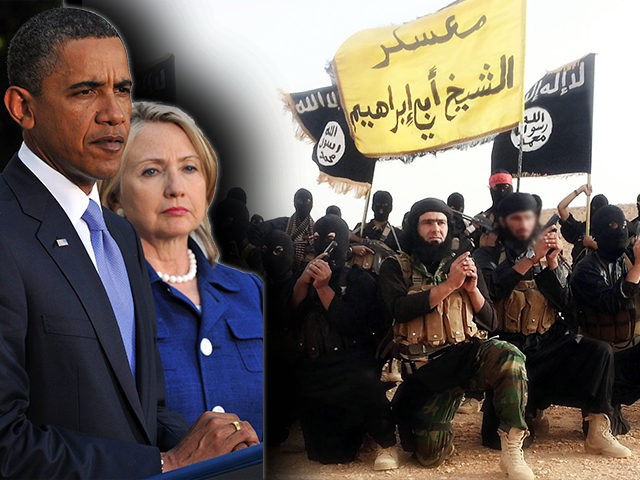- Fact-Check: Yes, the Hillary Clinton Campaign Used Activists to Disrupt Trump Rallies
- Fact-Check: Yes, Most of the Economic Gains Under Barack Obama ‘Have Gone to the Very…
- Fact-Check: No, the Clinton Foundation Did Not ‘Spend Ninety Percent’ of Money Donated on ‘Programs’
- Fact-Check: Yes, the Clinton Foundation Took Millions from Countries That ‘Treat Women Horribly’
- Yes, ObamaCare Made Medicare More Solvent, But Not By Much
During Wednesday night’s final 2016 presidential debate, Republican nominee Donald Trump repeatedly asserted that rival Hillary Clinton, in her capacity as secretary of state under President Barack Obama, “gave us ISIS.”
Fact-Check: MOSTLY TRUE
“Look at her real record,” Trump said. “Take a look at Syria, take a look at the migration, take a look at Libya, take a look at Iraq. She gave us ISIS because her and Obama created this huge vacuum and a small group came out of that huge vacuum.”
Trump argued of Iraq, “we should have never gotten out the way they wanted to get out.” He noted that the Islamic State was now present in “32 countries.”
In 2014, The Long War Journal found that Islamic State operatives were active in 32 countries.
Military leaders and analysts have argued in favor of Trump’s claim that the 2011 withdrawal from Iraq emboldened regional jihadist groups, first and foremost the Islamic State. The Islamic State only formally became the group it is today, however, after Clinton stepped down from the State Department.
“If we had stayed a little more engaged, I think maybe it might have been prevented,” Army General Raymond T. Odierno, the former top U.S. military official in Iraq, said of the collapse of Iraq after 2011.
“There is consensus among military practitioners — traditionally, the last people in the world who want to go to war — that leaving Iraq was a mistake,” American Enterprise Institute analyst Michael Rubin has said of the situation.
The Islamic State did not become the formidable jihadist group it is known as today until long after Clinton’s tenure heading the State Department. It became the entity it is known as today (“the Islamic State of Iraq and the Levant”) two months after Clinton departed, and two years after President Obama ordered a dramatic reduction in the U.S. presence in Iraq.
While the group has existed in some form since 2003, it did not sever from its parent organization Al Qaeda and establish a caliphate in Syria and Iraq until shortly after Clinton vacated her position in the State Department in early 2013.
In August 2013, the Washington Post referred to the still Al-Qaeda-affiliated jihadist group as “by no means the largest of the loosely aligned rebel organizations battling to overthrow Syrian President Bashar al-Assad,” but one worth monitoring due to its prodigious growth in a short time. By February 2014 – a year after Clinton left office, Al Qaeda had severed ties with the group, condemning it.

COMMENTS
Please let us know if you're having issues with commenting.